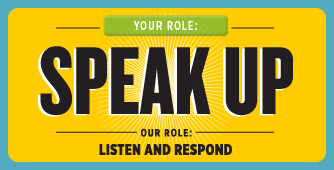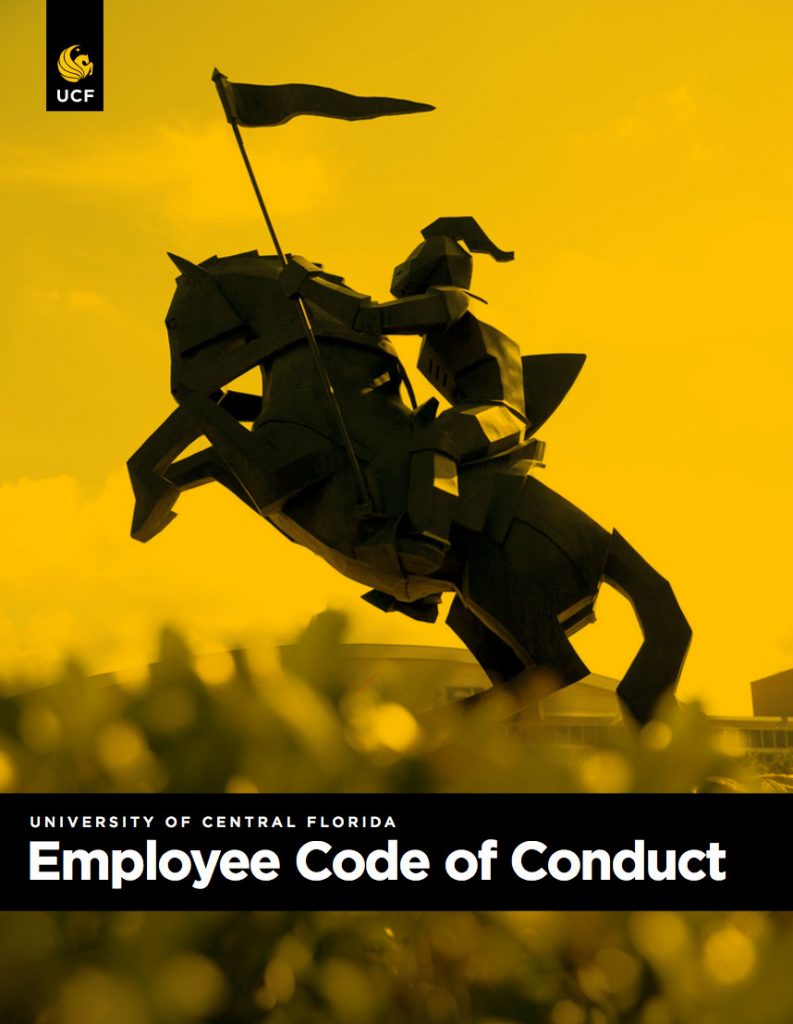 UCF Compliance & Ethics Newsletter
UCF Compliance & Ethics Newsletter
Harassment and the Law
What is Harassment?
“Harassment” and “hostile work environment” – what do these terms really mean under the law, and equally important, under UCF policy? “Harassment” is a form of employment discrimination that violates state and federal law, as well as university policy. Harassment is defined under UCF’s Regulation 3.001 as subjecting an individual “to verbal or physical conduct, based on a protected category …, which due to the severity and pervasiveness of the conduct, (i) has the purpose or effect of creating an objectively intimidating, hostile or offensive work, educational or business environment; and (ii) has the purpose or effect of unreasonably interfering with an individual’s employment, schooling, or business with the University.” This also is referred to as a hostile work environment claim and is prohibited by UCF.
When considering whether conduct constitutes harassment, it is important to keep in mind that there is a difference between a hostile work environment under the law and a work environment that feels hostile. It has repeatedly been stated by the courts that the employment laws regarding harassment are not meant to be a civility code. In other words, petty slights, annoyances, and isolated incidents of rude or obnoxious behavior generally are not enough to establish harassment. Equally important, the verbal or physical conduct at issue must be based on a protected category such as race, color, religion, sex, national origin, age, disability, marital status, sexual orientation, gender identity, and gender expression. Its severity or pervasiveness must also be of such a nature that a reasonable person would find it intimidating, hostile or offensive.
Harassment negatively impacts the entire workforce, not just the employee who believes the harassment is directed at him or her. Accordingly, employees who are not the targets of but are witnesses to the conduct can file a harassment claim. Also, the person engaging in the harassment can share the same protected categories as the persons harassed. For example, a female supervisor’s conduct of repeatedly using gender-biased terms when referencing her female subordinates and routinely sharing jokes about women being inadequate is not excused because she also is a woman. The conduct nevertheless could create a hostile work environment for the female subordinates in violation of university policy.
What is Sexual Harassment?
Sexual harassment is a prohibited form of sex discrimination and is defined as “unwelcome sexual advances, or requests for sexual favors, and other verbal or physical conduct of a sexual nature when: (a) submission to such conduct or request is made either explicitly or implicitly a term or condition of an individuals’ employment or academic achievement; (b) submission to or rejection of such conduct or request by an individual is used as the basis for employment or academic decisions affecting such individual [also referred to as quid pro quo harassment]; or (c) such conduct or request has the purpose or effect of both unreasonably interfering with an individual’s employment or academic performance and creating an intimidating, hostile or offensive work or academic environment.” (UCF-3.001) Sexual violence (including sexual assault, intimate partner violence, and stalking) is a form of sexual harassment. UCF does not tolerate discrimination or harassment, including sexual harassment and sexual violence. For information regarding reporting options and available resources, please visit UCF’s Shield website at https://shield.ucf.edu/.
Tips for Employees
UCF is committed to providing a safe, non-discriminatory environment for its students, employees, and community members. Be a part of and contribute to this commitment.
- Respect differences in the workplace. Embrace diversity rather than tolerate it.
- Be professional in conduct and speech. Avoid offensive humor or pranks. When in doubt, leave it outside the workplace.
- Refuse to initiate, participate, or condone discrimination and harassment.
- Familiarize yourself with the University’s policies and regulations, and act responsibly.
- Be pro-active. Report incidents of discrimination and harassment to your supervisor and UCF’s Office of Equally Opportunity and Affirmative Action (EOAA). Importantly, if you are a Responsible Employee, you are required to report all incidents of sexual assault, intimate partner violence, and stalking involving a UCF student or employee to UCF’s Title IX Coordinator, Dawn Welkie (Millican Hall, Suite 330; 407-823-1336, or Dawn.Welkie@ucf.edu). Similarly, if you have “supervisory capacity” and have “actual knowledge by direct observation or by receipt of a complaint of discrimination involving” any of the employees you supervise, you must “report the matter to an appropriate university official with authority to take action” such as EOAA.
- If you experience or have questions regarding discrimination or harassment, please visit EOAA’s website at http://www.eeo.ucf.edu/ or call 407-823-1336.


